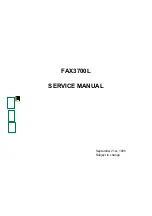
44
Scallop stitch
The wave-shaped repeating pattern, that looks like shells, is called "scalloping". It is
used to decorate the collar of blouses and the edges of knitting projects.
Using
the all purpose foot.
2~3
3~5
Using
the all purpose foot.
v
Scallop edging
Stitch along the edge of the fabric, making
sure not to sew directly on the edge of the
fabric.
For better results, apply spray starch onto the
fabric and press with a hot iron before it is
sewn.
Trim the fabric close to the stitching taking
care not to cut the stitches.
v
Shell tuck stitching
Use a lightweight fabric (tricot, for example).
Fold the fabric along the bias.
When the needle swings to the right, allow
the needle to just clear the folded edge of the
fabric.
After stitching, open the fabric and iron press
the tucks flat to one side.
Summary of Contents for K408A
Page 1: ...Instruction Manual K408A K417A K432A...
Page 2: ......
Page 7: ...Machine Introduction...
Page 11: ...Machine Setup...
Page 25: ...Sewing Basics...
Page 33: ...Utility Stitches...
Page 51: ...Maintenance and Trouble shooting...
Page 57: ......
Page 58: ......
Page 59: ......











































